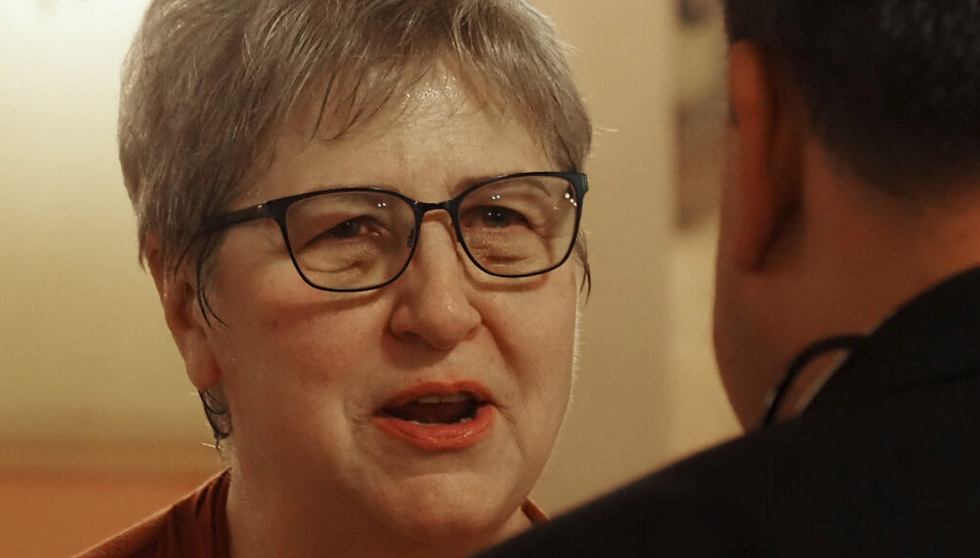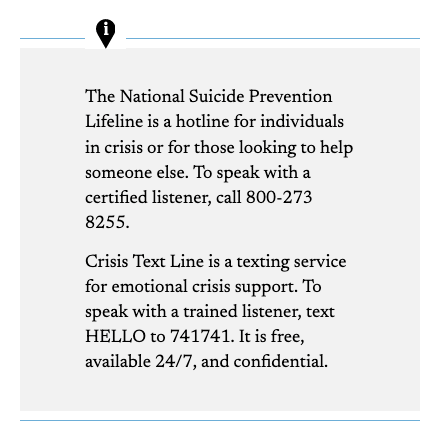
By NOAH TABORDA
Kansas Reflector
TOPEKA — After two days of work on a bill, a House committee agreed Wednesday to a proposal for the fee mobile and landline phones pay when Kansans seek help on a national suicide hotline starting later this year.
The House Health and Human Services Committee, led by Rep. Brenda Landwehr, R-Wichita, settled on a 20-cent monthly charge for anyone contacting the hotline number, 988. To supplement the funding necessary to allow for more intervention services to flow through the hotline, legislators agreed to an additional $3 million to be transferred from the state general fund to the hotline fund.

Potential expenses facing the Kansas Department of Aging and Disabilities include building up hotline centers, crisis intervention services and suicide prevention services, among others. Advocates say the bill is an important piece of the puzzle in suicide prevention and worth the costs.
“A hotline number that is easy to remember will increase the chance that vulnerable individuals might reach out and ask for help in a moment’s crisis,” said Shayla Sullivant, a child psychiatrist. “By making this number short and easy to remember, we send an important message to our community. We send a message that we understand that mental health concerns are real … and they deserve our full and immediate attention.”
House Bill 2281 establishes the full framework for the system, which received support from the attorney general’s office, several Kansas police associations, medical professionals and other stakeholders. After amending the bill to ensure a compromise was reached on program funding, the panel forwarded the bill to the House Energy, Utilities and Telecommunications Committee.
According to data collected from Kansas Vital Statistics, the rate of suicide in Kansas increased 69.9% from 11.3 to 19.2 per 100,000 persons between 1999 and 2018. The 2018 suicide rate was the highest in the past 20 years and is higher than the national rate of 14.2, which increased 35% during the same period.
According to the Kansas Department of Health and Environment, 521 Kansans lost their lives to suicide in 2019, with far-ranging implications beyond their death. From 2015 to 2017, Kansas resident suicides cost an estimated $2.24 billion in medical expenses and work loss, and 46,837 years of potential life lost.
“We, the state of Kansas, must now do our part to help support this lifesaving legislation and the funding necessary to ensure that there will always be someone at the other end of the line when perhaps you, me or one of our family members is reaching out for help,” said Jeff Cardwell, who lost his son to suicide nine years ago. “(The fee) is a very small price to pay to have that help when needed.”
While legislators were eager to provide these services, they also wanted to ensure some businesses and poor Kansans were not charged unfairly. Rep. Tory Arnberger-Blew, R-Great Bend, proposed a cap for how much a business could be charged per month of $50, or 250 lines, later changed to $10, or 50 lines.
Rep. John Barker, R-Abilene, suggested adding in another layer to minimize cost for those below the poverty line. Both amendments failed because of a lack of fiscal clarity about what this would do to program funding.
“I am looking out for the business, a business that has multiple lines,” Arnberger-Blew said. “I will bring it to the floor and have the fiscal note with it.”



